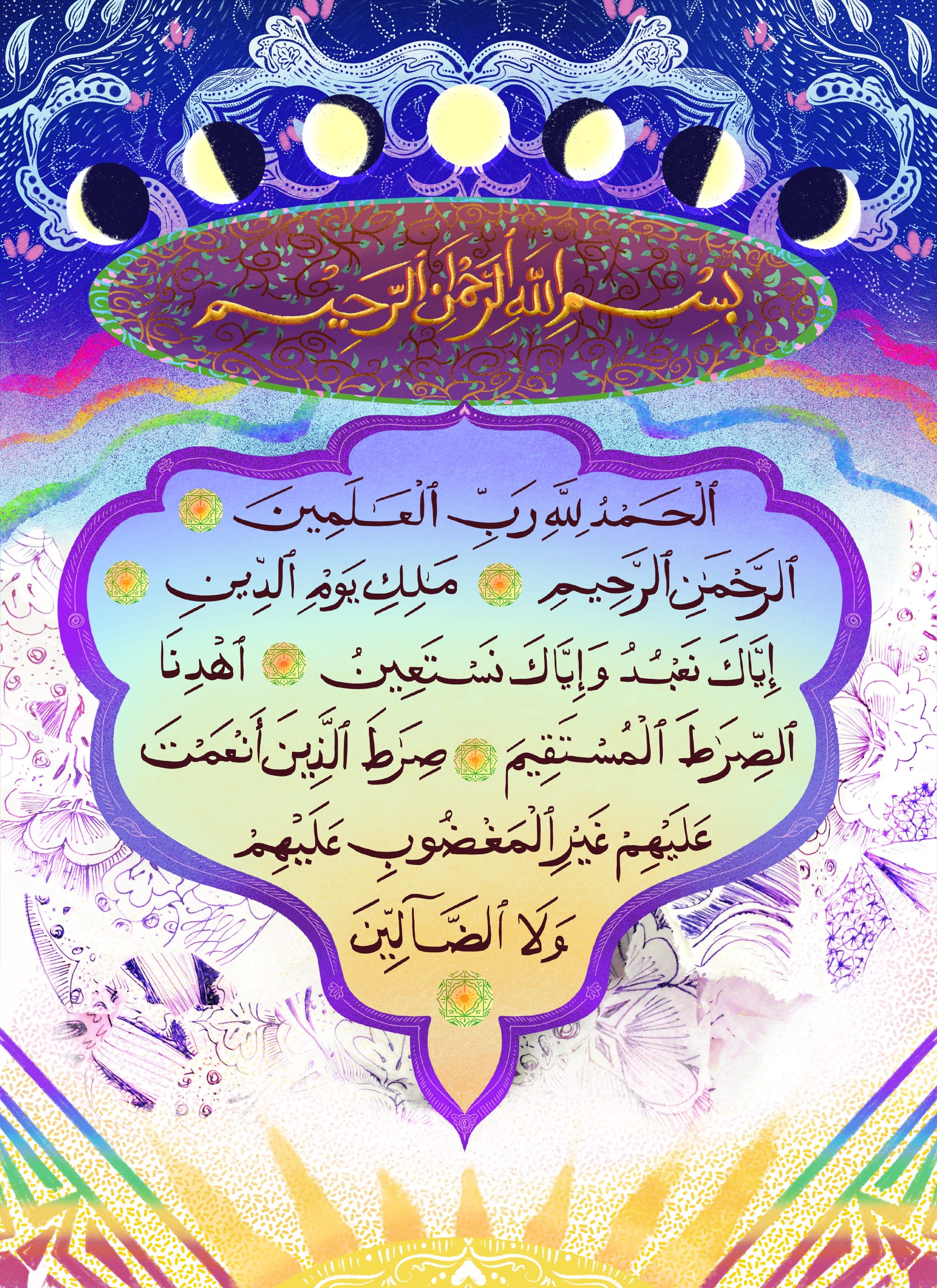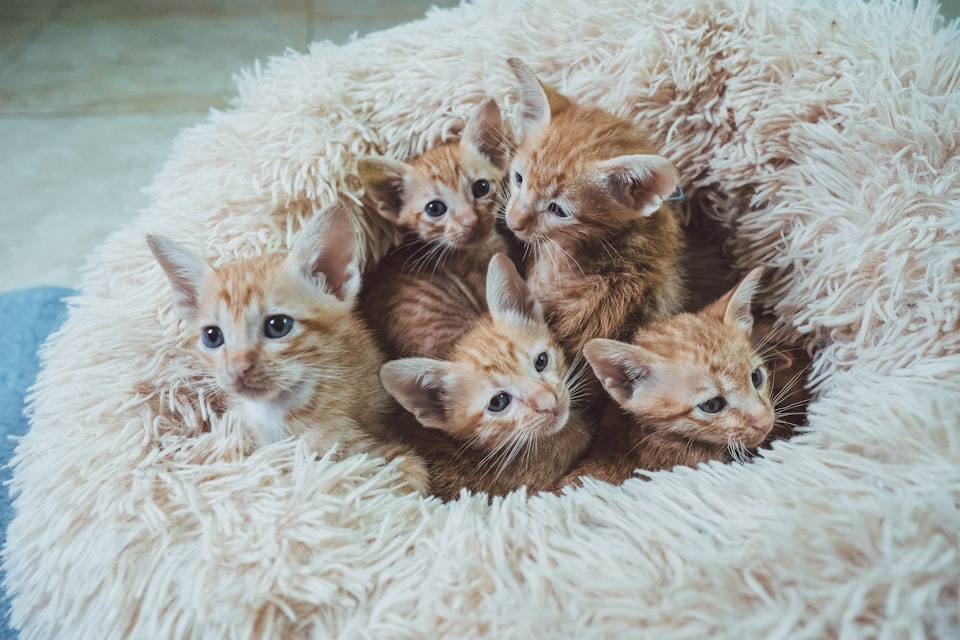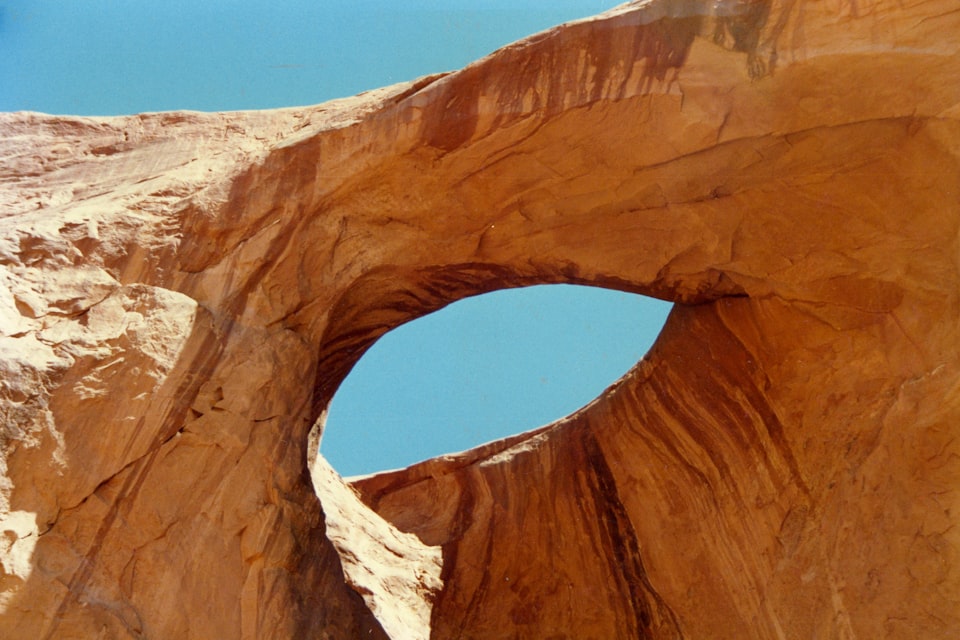Our daily lives, challenges, and priorities (The Signs In Ourselves, Part 3 of 12)
A young woman decides to leave all that she has known behind in search of love, and a man brings his collection of classical texts to face a mufti in person. Queer Muslims answer: What's really important to you right now?
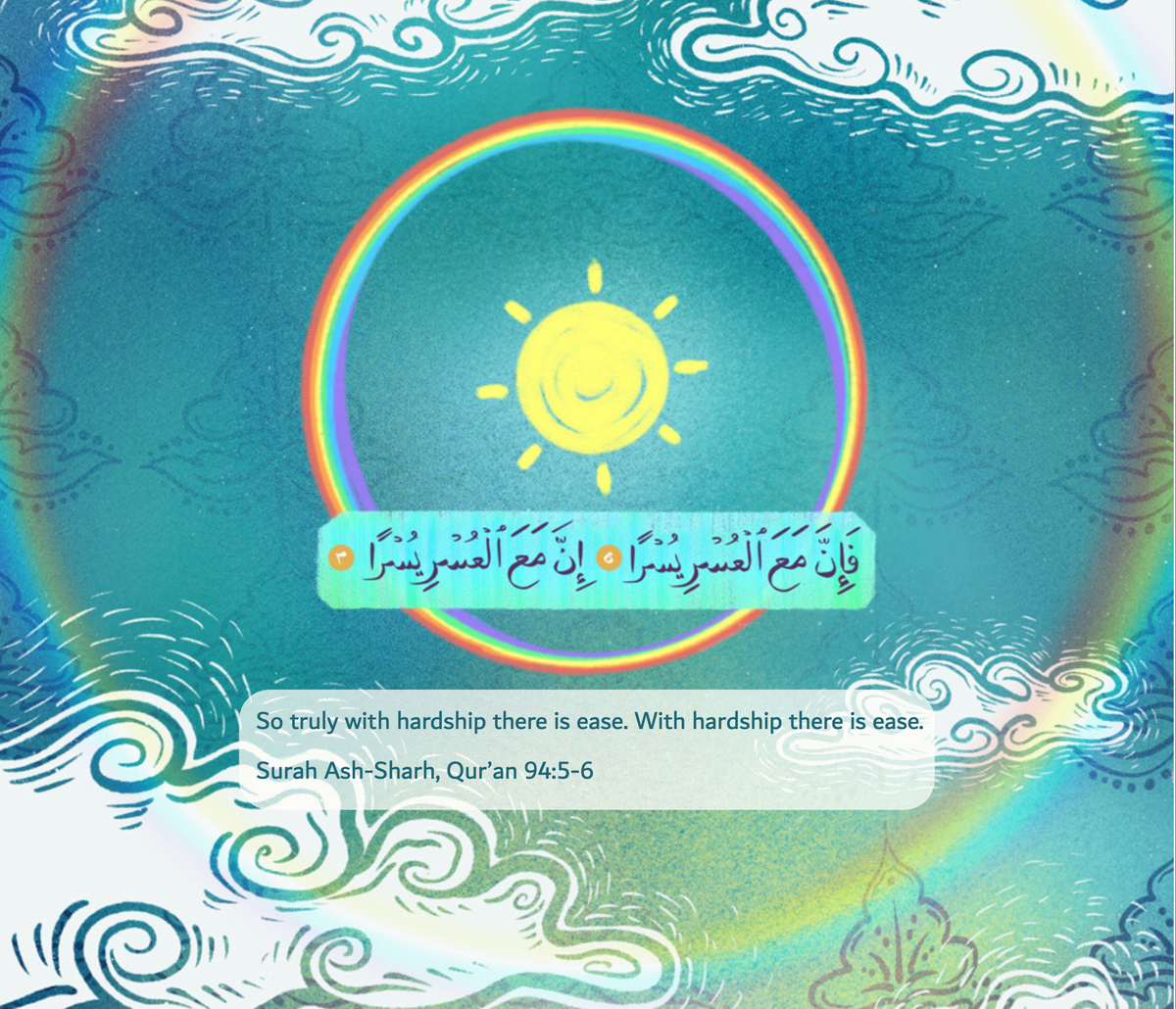
In this section, a young woman decides to leave all that she has known behind in search of love, and a man brings his collection of classical texts to face a mufti in person. After looking at the big picture in earlier exercises, Exercise 3 invites you to go in detail about your time, your challenges, and your current priorities. Curious about what really matters to other sexually diverse Muslims right now? We close this part with a few of their answers.
- Looking for connections to the divine
- Challenging hatred with knowledge
- What is really important to you right now?
- Exercise 3

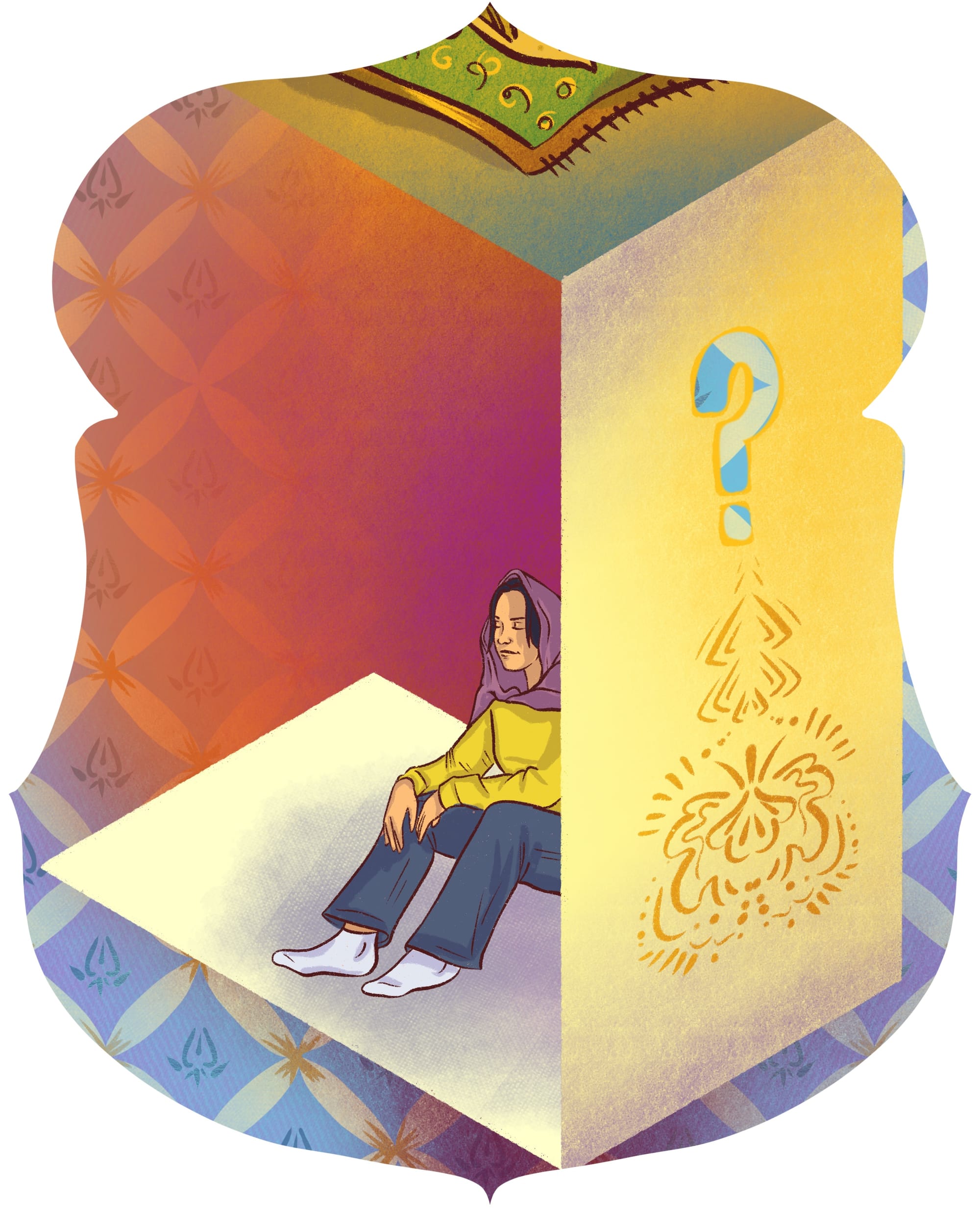
LOOKING FOR CONNECTIONS TO THE DIVINE
"When my Muslim community rejected me, I was confused. Where is God now?"
When she was a child, she was only allowed to leave the house for daily Qur’an class at the neighbour’s, and struggled to imagine a God who loved. “It was hard to communicate with my parents, because my mother was so protective and didn’t allow me to interact with my neighbours. My parents never told me about who or what God is, they always referred instead to my obligations. I must fast and pray, for example, if not God will not be angry or distant from me. I do my obligations to be closer to God and get rewarded, otherwise there will be a punishment. When I was small, I remember reading books about hell that had graphic pictures of people with their tongues stretched and cut repeatedly because they were liars in this world. In a way, I tend to remember God through this hell and punishment framework in childhood, rather than God as a being who loved me.”
In high school, she found connection and an understanding of God in a community of Muslims she met after class. “I learned the Quran and Islam from them. They weren’t as strict as my school’s community. I felt comfortable with them because we could discuss things like philosophy, which my school halaqah avoided and called a western innovation. We discussed many controversial issues and topics I had never encountered before. We talked about how to understand God through critical thinking. I was very attached to them. I felt really happy to find these people and speak my own thoughts, after problems doing this at home with my family. Although my mother and father provided financial support, they could not be good friends to me. In my Muslim community however, I was empowered, I had many friends, I could speak and even debate.”
She loved her community, but she was lonely. She couldn’t talk about her sexuality with anyone. “I totally could not discuss this. My friends kept talking about their opposite-sex crushes, but I felt attracted to women, and there was simply no discussion about it within my Muslim community. It was difficult for me that I could not talk about it with anyone.”
At 19, she ran away from home to another state, and lived precariously for a few years until a lesbian organisation flew her to Jogjakarta for safety from targeted homophobia. She then decides to go to college. “I was chatting with lesbian women online in an mIRC channel, and finally could share what I felt. Furthermore, I felt so distant from my parents because they thought I had become a rebel because of my Muslim community activities. It led me to decide that I had to leave, and so I fled my home and community behind. I didn’t want to contact my parents until I was safe because I wanted to be self-sufficient. They were upset that I left home, but supported my decision to study.”
However, when she tried to reconnect with her Muslim community from back home, it did not go as well. “I still had their numbers. I reached out to three people I felt very attached to, and two of them told me directly: No, we don't want to associate with you anymore, because you're now a lesbian feminist. These people were like siblings to me, and they completely cut me off. The rejection was overwhelming.”
In inclusive spaces, she still could not talk about God, and her sense of disconnection continued. “It was like the opposite of the community back home. My LGBT friends were open to discussing almost everything, even sex positions and orgasms. But when I nominated a question about God for the discussion group, they said we can't talk about God here. I felt even more rejection and disconnection. Ten years ago, the LGBT community was not used to talking about reconciling Islam with sexuality. I needed to read more on my own because I could not discuss it with my friends.”
She reflected on the rejection from her Muslim community. “When they rejected me, I remember wondering: Why was I rejected? One of the first things we learned together was iqra' and the importance of reading. The Prophet decided to change his society after he left his cave, so the idea of Islam as societal change is very connected to God in my Muslim community. Yet they rejected me for my identity, even though we explored so many Quran verses about thinking for yourself. Why is it when I am different, they cannot open a discourse about it with me? Isn't that part of critical thinking?”
She wondered where God was. “I never thought that God saw me differently, but I did feel that I was losing my connection to God through community. And I felt that I could only connect with God in community. In community, I can learn about God, and feel God is with me and my friends. So when my Muslim community rejected me, I was confused. Where is God now? I could not figure it out. In Jogjakarta, I volunteered for a women's network. They invited Irshad Manji and a Catholic lesbian priest to a panel. Those meetings cheered me up— finally, there are people talking about this! They may not be from Indonesia, but they discussed faith and spirituality with me. From there, I began feeling a connection to God again.”
Now she spends time with herself exploring different ways of connecting to the Divine, including eating meat-free. She is a freelance researcher living alone and building a connection to plants. “I burned out a few years ago from working 9-5 and now I’m a freelance researcher mainly for women and LBT non-profit organisations, as well as a local activist fund. I research based on their needs, and it's fun. I live alone. I've just moved to a new place, with more space to cook and more sunshine through my window. My father lives 3 hours from me and I travel once a month to visit him. I'm in a long-distance relationship with someone in another part of Indonesia— we've been together for half a year and we're both Muslim. I also like to meditate, sing, and play guitar and ukulele. I write a lot. I began journalling seriously last year as a way for me to realise my feelings and heal. I remember what the Prophet said to Abu Bakar when they were hiding in the cave because people had driven them away— Don’t be sad, Allah is with us (9:40). I believe that God in the universe takes care of me, so I must be good to myself. The most important thing for me right now is to connect with myself more. Doing that means that I can have a connection with people and other things. I also realised I never had any connections to plants or nature my entire life. So now my current interest is growing plants. YouTube has been my teacher! I am happy to learn, try slowly, and I'm starting to connect with them. They are part of my journey of what I need to connect with to heal.”
She finds a sense of connection to the Divine in a more balanced sense of spirituality that leads her to redefine her understanding of love. “The word love is quite tricky for me. Maybe because of how I experienced people's idea of love. For example, my mother was very protective, and she called that love. What comes to mind is that I experience God's love for me when I can do things without a deep expectation to reciprocate. Maybe because I've craved attachment and community for so many years of my life, that it made me not clearly see God's love. So I try to slowly release those feelings. I feel more relaxed when I don't push myself into feeling this way or that way, just because I want to feel intimacy with this person or that person. When I meditate, I pray for people I don't know at all, instead of just the ones I love. My friends who facilitate collective meditations say that thinking of a shared experience with everyone can reduce attachment. Sharing something reduces its power over you. There's a relief in that process. In that moment I feel, this is how I can get love from God— if I can call it love.”

CHALLENGING HATRED WITH KNOWLEDGE
"... at least I can meet God in peace saying I did this work so that others can continue it."
When a recording of an event he was a panelist in reappeared years later, framed with a headline targeted directly at him— “something like: Lawyer says al-Quran does not prohibit homosexuality!”— it brought on death threats and job loss. “I was in Indonesia at the time attending KUPI, the inaugural Congress of Indonesian Women Ulama, and when I came back I was surprised to see the news coming in. Every day there was something— in text chains, news portals, social media. I taught fiqh jurisprudence classes in a few universities and gave talks in mosques. Those were all cancelled. My contracts were terminated because of this piece of media. I received death threats on social media, texts with my home address and family's names.”
He had been around long enough to know who was behind it. “An ultraconservative Islamist NGO was part of this, and I confronted them online with an offer to meet in person to explain what I presented those years ago. They refused my invitation and deleted their posts. I confronted many of these people, and ultimately I decided to see the state mufti to clarify myself at that level.”
His decision received mixed reactions from his activist friends, but— as he explains— they aren’t in his main environment. “They said to meet him would be to clarify myself to religious authority when I didn't need to. I explained to them that I come from a traditional conservative background, not in rights activism. I teach in mosques, I know how to read texts. It's a different world. I personally don't like being labeled liberal. It makes it hard for me to occupy these traditional spaces that I have always been a part of.”
And so he met the mufti. “I brought all my kitabs and books with me. I pointed out to him where I said everything I did, to prove that it was not something I made up, or even really original thought. He validated my proofs, but his advice was to not share any of it publicly. It would confuse people, he said. But the way I see it, everything is already on the Internet. Isn't it better to hear it from someone with training like me?”
What is most important to him now? “In the language of pesantren or scholars, we call it Khadim al-Turath. Khadim means servant, so this means being a servant of religious texts. My doctoral thesis is about the fiqh of minority, specifically the permissibility of transgender reassignment surgery. My priority now is to write and speak about how to reconcile sexual and gender identity with faith. Especially among us Muslims. And I know this will take a long time. When we work with the community, there are many who cannot yet accept this. So I know it's a struggle. I think in my lifetime we won’t get there yet. But at least I can meet God in peace saying I did this work so that others can continue it.”
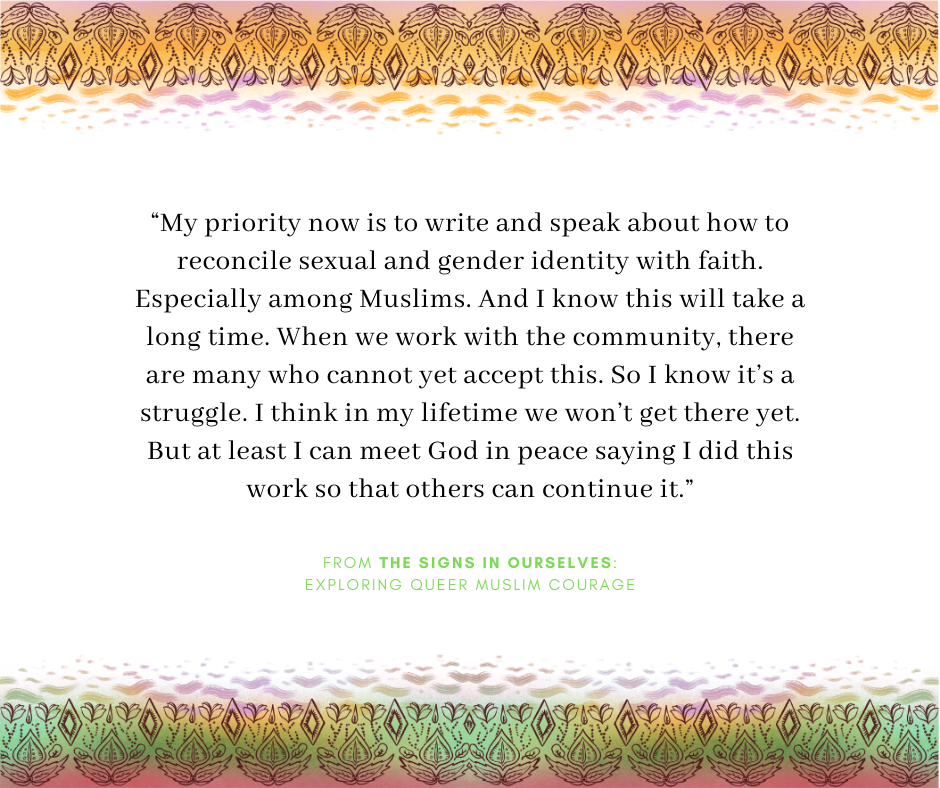
WHAT IS REALLY IMPORTANT TO YOU RIGHT NOW?
- "Moving out of my childhood home so I can be myself and live how I want." (29, Malaysia, she/her)
- "Trying not to relapse." (19, lesbian, she/her)
- "Finding a job and being employed so I can leave my family and escape their pressure for me to marry." (33, Bangladesh, he/him)
- "Having a true, fearless life of my own." (33, Qatar, he/him)
- "Letting go of my anger. People tell me I am good-hearted, but can a good heart also be an angry heart? I’d like to release my anger or channel it productively. I want to show my family the love and kindness I can express to my friends. I don’t want to be a cog in the machine that doesn’t stand for anything. I want to be part of actual, tangible change towards justice and equality." (trans, Bangladesh, he/him)
- "I want to be the best version of myself so I can help emotionally support my children." (41, cis woman, she/her)
- "Learning to love myself." (38, France, she/her)
- "LOVE." (27, genderfluid, they/them)
- "Myself. I put other people first, so I tend to ignore my priorities." (30, bisexual, she/her)
- "Healing from my religious trauma and other traumas. My faith in Allah, my family, my partner, my cat, my creative outlets, and my friends, who can also be family to me." (cis woman, Egypt, she/her)
- "Contentment and peace. I want to be okay with whatever I feel, and to be okay with the consequences of my past and worries for my future." (35, Malaysia, she/her)
- "My layered identities as woman, Muslim, queer, bisexual, a nomad. Making art around the issue of sexuality. I must defend what I am convinced of so I do not give up on life. What’s also important to me is the LGBTQ community around me and our allies." (artist, Indonesia, she/her)
- "Myself, to be honest. And changing the mindset of people, to spread progressive ideas of Islam. Besides that, my work for the community is most important." (khwaja sira social activist, Pakistan, she/her)
- "Balance." (60s, nonbinary, they/them)
- "Kindness, empathy, and compassion. Helping other queer fellow Muslims better understand their relationship with God. Creating a space where we can sit and talk about our understanding of religion and God." (35, Pakistan, they/them)
- "My chosen family and blood family are so important to me. My main concern is family and everything else is fleeting. I call those I can't see, I check in daily when I can, the people who I consider my people mean so much to me. Then it's my future. I'm starting college and I have so many expectations for myself. I'm always trying to be become a better Muslim, I think about how important my faith is to me all the time. But you have to understand the meaning behind your actions for them to matter. What good are the ayahs I memorised if I don't know what they mean? What good is my faith if I don't afford everyone basic respect and humanity? I think the process of becoming is more important to me. How can I thrive in my spirituality? That is the question I am always trying to answer." (18, cis woman, she/her)

Exercise no.3
from the workbook The Signs In Ourselves
Your Turn: Personal Reflection
- What can you share about how you spend your time?
- How would you describe the challenges you face in your location and context?
- What is really important to you now?
Collective Discussion
Share your day-to-day reality with another queer Muslim or ally. Some questions to ask each other in a safe space: Are you a student? Do you work? Are you in a relationship? How are your living conditions? What challenges do you face and what are your current priorities? Discuss any patterns you notice in the group.
This post is adapted from The Signs In Ourselves (pp. 26-32), a queer spiritual wellbeing workbook inspired by Qur'an verses 41:53, 51:20-21, and interviews with Southeast Asian Muslims. Written by Liy Yusof and illustrated by Dhiyanah Hassan, it was made available online in 2020 by the Coalition for Sexual & Bodily Rights in Muslim Societies. May Allahﷻ accept this offering and bring it to those who need it. Letters and inquiries: qmcourage [at] gmail [dot] com.
